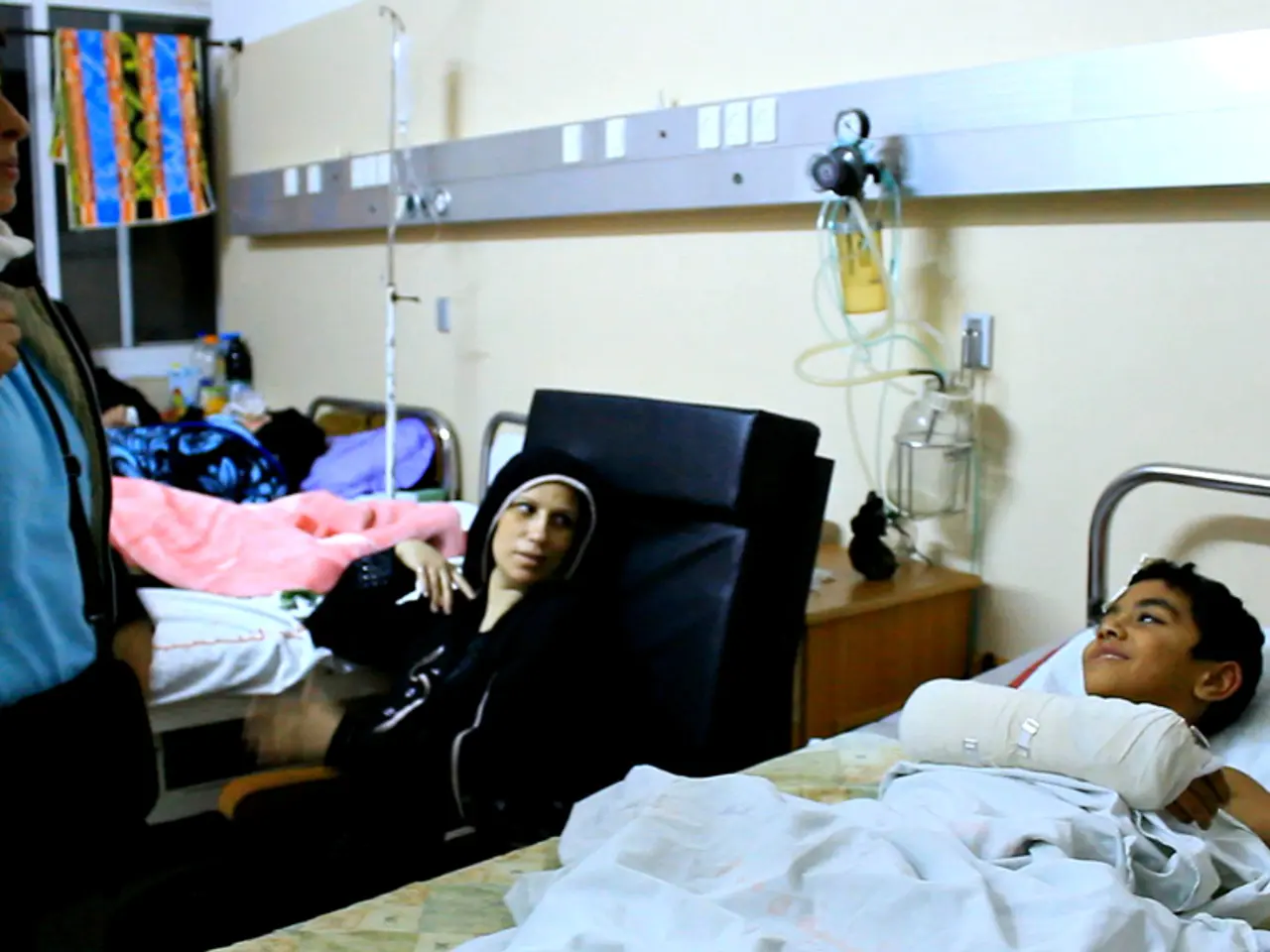Medical Developments:
The University of Colorado Hospital (UCH) in Aurora, Colorado, has been the subject of an investigation by the Colorado Department of Public Health and Environment (CDPHE) due to concerns raised about the adequacy of sterilization processes and staffing within the hospital's Sterile Processing Department (SPD).
The investigation was initiated following reports of a staffing shortage in the SPD, which led to the postponement of some non-emergency surgeries to ensure the availability of sterile instruments for urgent and emergency procedures [1][2][4][5].
Key findings and responses from the investigation and hospital include:
- The SPD has been operating below safe staffing levels, reducing its capacity to sterilize surgical instruments effectively [1][4].
- As a direct consequence, elective surgeries at the hospital were postponed to maintain availability of sterile instruments for urgent and emergency surgeries [1][2].
- UCH has responded by increasing staffing in the SPD to restore normal sterilization capacity [1][4][5].
- The CDPHE's complaint investigation is ongoing, but public details about the precise nature of the sterilization issues have not been disclosed beyond the staffing-related capacity concerns [1][2][5].
- Hospital representatives have expressed apologies for the inconvenience caused to patients and emphasized efforts to quickly reschedule postponed cases once SPD capacity returns to normal [1].
The situation highlights the critical role of sterile processing departments in patient safety and infection prevention. Inadequate staffing and process control in SPD can lead to delays in surgical care and potential risks if contaminated instruments reach patients [4].
As of late July 2025, the hospital is resuming a more-normal volume of pre-scheduled procedures. Patients who had their surgeries postponed have already received new surgery dates [1].
Sterilizing surgical instruments is a complex process, and technicians must undergo training to ensure they don't miss a step and leave germs on equipment. Dan Weaver, spokesman for UCHealth, which owns the hospital, emphasized the hospital's commitment to patient safety and quality care [3].
This investigation serves as a reminder of the importance of proper staffing and sterilization procedures in healthcare facilities. The results of the investigation will be posted on the state health department's website once it is completed.
[1] - Colorado Department of Public Health and Environment [2] - University of Colorado Hospital [3] - UCHealth [4] - Association of periOperative Registered Nurses [5] - Centers for Disease Control and Prevention
- The Colorado Department of Public Health and Environment's investigation revealed that the University of Colorado Hospital's Sterile Processing Department had been operating below safe staffing levels, potentially impacting health-and-wellness of patients by reducing the department's capacity to sterilize surgical instruments effectively.
- Hospitals play a vital role in public health, and the environment where medical-conditions are treated must maintain high standards of sterilization to prevent infection and ensure health-and-wellness for patients.
- In an effort to address the concerns raised during the Colorado Department of Public Health and Environment's investigation, the University of Colorado Hospital increased staffing in its Sterile Processing Department to restore normal sterilization capacity, as emphasized by UCHealth.
- Health scientists stress that the process of sterilizing surgical instruments is complex and requires careful attention from trained technicians to prevent the spread of germs and maintain optimal health for the patients they serve.




